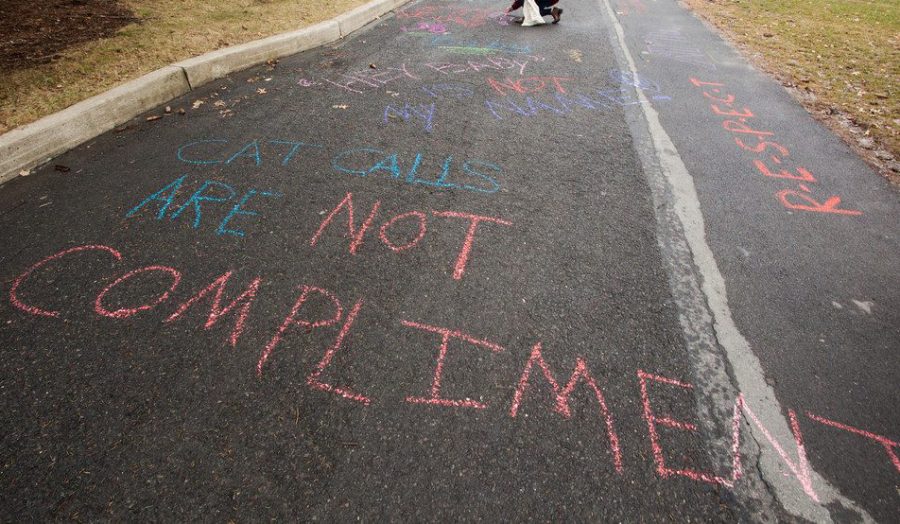Stop Victim Shaming
Star gymnast and two-time Olympic athlete Aly Raisman took to Instagram recently to speak out against those who blame sexual assault on the way victims dress. “Just because a woman does a sexy photo shoot or wears a sexy outfit does not give a man the right to shame her or not believe her when she comes forward about sexual abuse,” Raisman, who took home six Olympic medals as a member of the U.S. women’s gymnastics teams, the “Fierce Five” in 2012 and “Final Five” in 2016, wrote on the social media channel. “What is wrong with some of you?”
In response, Raisman’s former teammate, Douglas wrote on Twitter that “it is our responsibility as women to dress modestly and be classy.” Douglas went on to suggest that perhaps Raisman was enticing “the wrong crowd,” possibly alluding to a Sports Illustrated body issue that Raisman was featured in. Douglas has since apologized for her remarks and deleted the Tweet.
Raisman’s has come forward accusing Larry Nassar, a former Olympic doctor who is accused of multiple incidents of sexual abuse of young gymnasts. Nassar allegedly molested dozens of girls who were under his care. Though it should hardly matter, at the time of the abuse, Raisman had not posed for any Sports Illustrated spreads. It’s worth noting that male athletes pose for the same magazine issue, which focuses on aesthetics and the human body in it’s most sculpted form. But men are treated differently, aren’t they?
Compounding the issue, Douglas said last week that she had also been sexually abused by Nassar. It makes one a little perplexed by her initial comments, but could also be due in part to how victims often see themselves in a negative light. For some victims, they often feel as if they deserved the poor treatment.
Women are faced with sexual harassment almost every day. From being catcalled as they are walking down the streets, to being stared and hunted down by those who can’t take no for an answer. It can be as simple as a guy sending a message through social media. When there is no answer given or a woman isn’t interested, she is automatically called all kinds of names.
Sometimes women do it to other women.
A woman could be picked apart every day, from the way she dresses, to how she looks, to the way she talks. No one bats an eyelash. If a woman dresses somewhat revealing it becomes a gateway for people to say, “well, if she dresses like that, it’s because she wants attention.”
The public is so caught up constantly trying to find excuses to cover up their defamatory conduct against women when they should be learning how to mind their own business. They should be learning that no means no, and that a woman is entitled to do whatever she pleases with herself without having to be bashed on by people she doesn’t know or worrying that she will gain negative reputation.
Six in 10 women have been sexually harassed, according to a Quinnipiac University poll released this month.
Women who have been sexually harassed have difficulty speaking out, not because they’re lying, but because the response they get back from the public makes them feel embarrassed.
Lots has changed, but, in many ways, too often there are little ramifications for abusers.
Anita Hill, the Brandeis University professor, provides an interesting glimpse at how much has changed and, at the same time, stayed the same.
In 1991, Hill came out strongly against Clarence Thomas, now a Supreme Court justice, over a pattern of abuse. She described how Thomas, who had been her boss, had sexually harassed her by asking her out and every time she refused, he would demean her. Hill was brave. However, she was made a pariah by a dozen women who had previously worked with her. When asked to take a polygraph, Hill took hers and passed. Thomas refused to take one. He eventually went on to be confirmed to the Supreme Court. It was like nothing had ever happened.
“Women who accuse men, particularly powerful men, of harassment are often confronted with the reality of the men’s sense that they are more important than women, as a group,” Anita once said.
And, as sad it may be, this ultimately is the case for many women who speak out.
Sexual abuse is hardly a partisan issue. Democrats and Republicans who are powerful are equally problematic in the way they have behaved. After all, too much power can, evidently, lead to corruption. Former President Bill Clinton was accused of multiple instances of abuse, but the women were often discredited. President Donald Trump has been called out, but went on to become the president to the United States.
Maybe it’s time to ask if we’ve learned anything.


